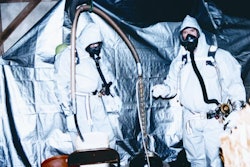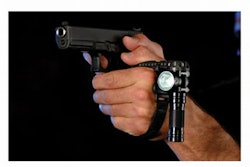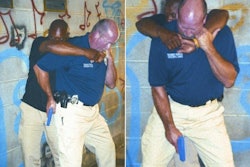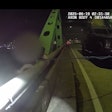Most law enforcement officers are familiar with the term "Brady error." But what exactly does the Brady rule cover, and what obligation does it impose on police? Under the Brady line of cases, when must officers preserve evidence, and what must be revealed to the prosecutor? These questions have been answered in a series of opinions from the U.S. Supreme Court.
The Due Process Duty to Disclose
The Fifth Amendment due process clause applies to federal officers and prosecutions; the Fourteenth Amendment due process clause applies to state and local officers and prosecutions. Both clauses guarantee fairness in the procedures used to convict a criminal defendant and to impose punishment that deprives the defendant of life (death penalty), liberty (incarceration), or property (fines).
In Napue v. Illinois, the Supreme Court considered the unfairness of a trial in which the prosecutor failed to disclose to the defense that a key prosecution witness had been promised consideration for his testimony against the defendant-a fact that could have been used by the defense to attack the witness's credibility. The court ruled that the prosecutor had a duty under the due process clause to reveal this information.
Napue was followed by Brady v. Maryland, in which the prosecutor withheld a codefendant's confession from the defendant's attorney, who had filed a discovery request for all statements made by the codefendant. The court said, "We hold that the suppression by the prosecution of evidence favorable to the accused upon request violates due process where the evidence is material either to guilt or to punishment, irrespective of the good faith or bad faith of the prosecution."
This "Brady rule" has since been applied in innumerable cases throughout the country, causing the reversal of convictions when it is shown that evidence that should have been disclosed to the defense before trial was withheld, whether inadvertently or deliberately.
In Brady, the defense attorney had made a specific request for discovery that encompassed the material withheld. But the court went further in U.S. v. Agurs and held that "there are situations in which evidence is obviously of such substantial value to the defense that elementary fairness requires it to be disclosed even without a specific request."
And in Kyles v. Whitley, the court ruled that due process is violated when Brady material is not disclosed, even though police might not have revealed the existence of the evidence to the prosecutor: "The individual prosecutor has a duty to learn of any favorable evidence known to the others acting on the government's behalf in the case, including the police."
In addition to evidence that tends to raise doubts about the defendant's guilt or that might reduce his culpability and mitigate punishment, Brady also requires disclosure of evidence that could be used to impeach prosecution witnesses (U.S. v. Bagley), including details of any inducements given in exchange for testimony. (Giglio v. U.S.) In some cases, the identities of undercover informants whose testimony might be critical to the defense may have to be disclosed. (Roviaro v. U.S.)
Police can assist the prosecutor in meeting the due process responsibility by making a full and complete accounting to the prosecutor of all known evidence in the case. Officers must inform the prosecutor of any testimonial inducements, any sustained misconduct that might tend to impeach a material police witness, the failure of an eyewitness to make an ID, etc. In short, the prosecutor must be given the good, the bad, and the ugly details of the criminal investigation, so that he or she can assess the duty to make timely disclosure and avoid "Brady error."
The Due Process Duty to Preserve
Obviously, evidence that has not been preserved by police cannot be disclosed to the prosecutor, or by the prosecutor to the defense. In some instances, police failure to keep evidence for trial may cause due process problems.
The responsibility for determining what to disclose and what to withhold is on the individual prosecutor, and "the prudent prosecutor will resolve doubtful cases in favor of disclosure." (U.S. v. Agurs) To meet the due process duty, the prosecutor must have knowledge of evidence, and the evidence must still be in existence.
The decision by police officers to include particular information in a report or to make sure that physical evidence is preserved depends on their recognizing the potentially exculpatory nature of the evidence, and having some way to preserve it. This will not always be easy, but like the prosecutor, the prudent officer will resolve doubtful cases in favor of inclusion and retention, whenever possible.
The Supreme Court first considered an issue of failure to preserve in Killian v. U.S. FBI agents had made rough notes of their interviews with an undercover operative, and after incorporating the contents of the notes into finished reports, they destroyed the notes, as was their standard practice. The defendant argued that police failure to preserve the notes deprived him of due process.
The Supreme Court rejected this argument, ruling that since the contents of the notes were reflected in the official reports to which the defense had access, there was no prejudice to the defense. "If the notes were destroyed by the agents in good faith and in accord with their normal practice, their destruction did not constitute an impermissible destruction of evidence nor deprive defendant of any right."
The court next addressed a preservation issue in California v. Trombetta, in which the DUI defendant argued that police should have preserved an ampoule of his breath for independent analysis of blood-alcohol content. Although the California courts agreed with this assertion, the U.S. Supreme Court reversed and held that due process was not violated.
To require officers to preserve an item of evidence, said the court, "the evidence must both possess an exculpatory value that was apparent before the evidence was destroyed, and be of such a nature that the defendant would be unable to obtain comparable evidence by other reasonably available means." Because it was highly unlikely a separate breath sample would have yielded a different result, there was no apparent exculpatory value in preserving a breath sample.
In Arizona v. Youngblood, the Supreme Court reversed a state ruling that a child molester had been denied due process when officers failed to preserve semen samples from the victim's clothing. The court said, "Unless a criminal defendant can show bad faith on the part of the police, failure to preserve potentially useful evidence does not constitute a denial of due process."
Bad faith would require that police realize that the evidence they were about to destroy might be exculpatory, as in Youngblood v. West Virginia (different Youngblood), where an officer allegedly told a witness to destroy her note indicating that a charged forcible sex act was in fact consensual. Such evidentiary destruction would violate due process.
Preventing Brady Error
Police have a duty to keep evidence for possible defense use if the evidence reasonably appears to have potential exculpatory value to the defendant. Both incriminating and exonerating evidence must be reported, so the prosecutor can determine what must be disclosed to the defense. Discovery statutes may impose additional disclosure requirements on police and prosecutors, and these must also be observed.
Devallis Rutledge, a former police officer and veteran prosecutor, is Special Counsel to the Los Angeles County District Attorney.


















